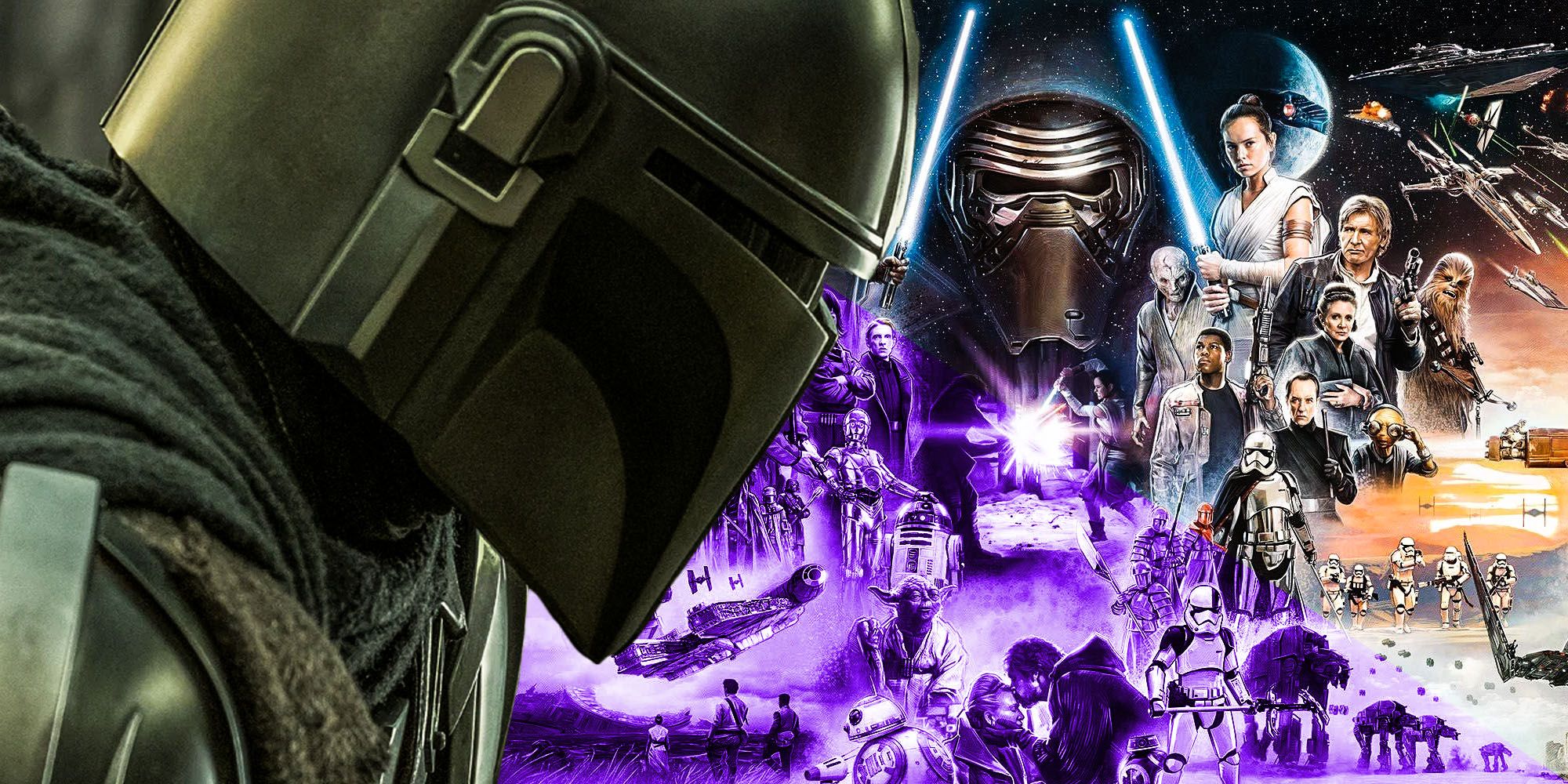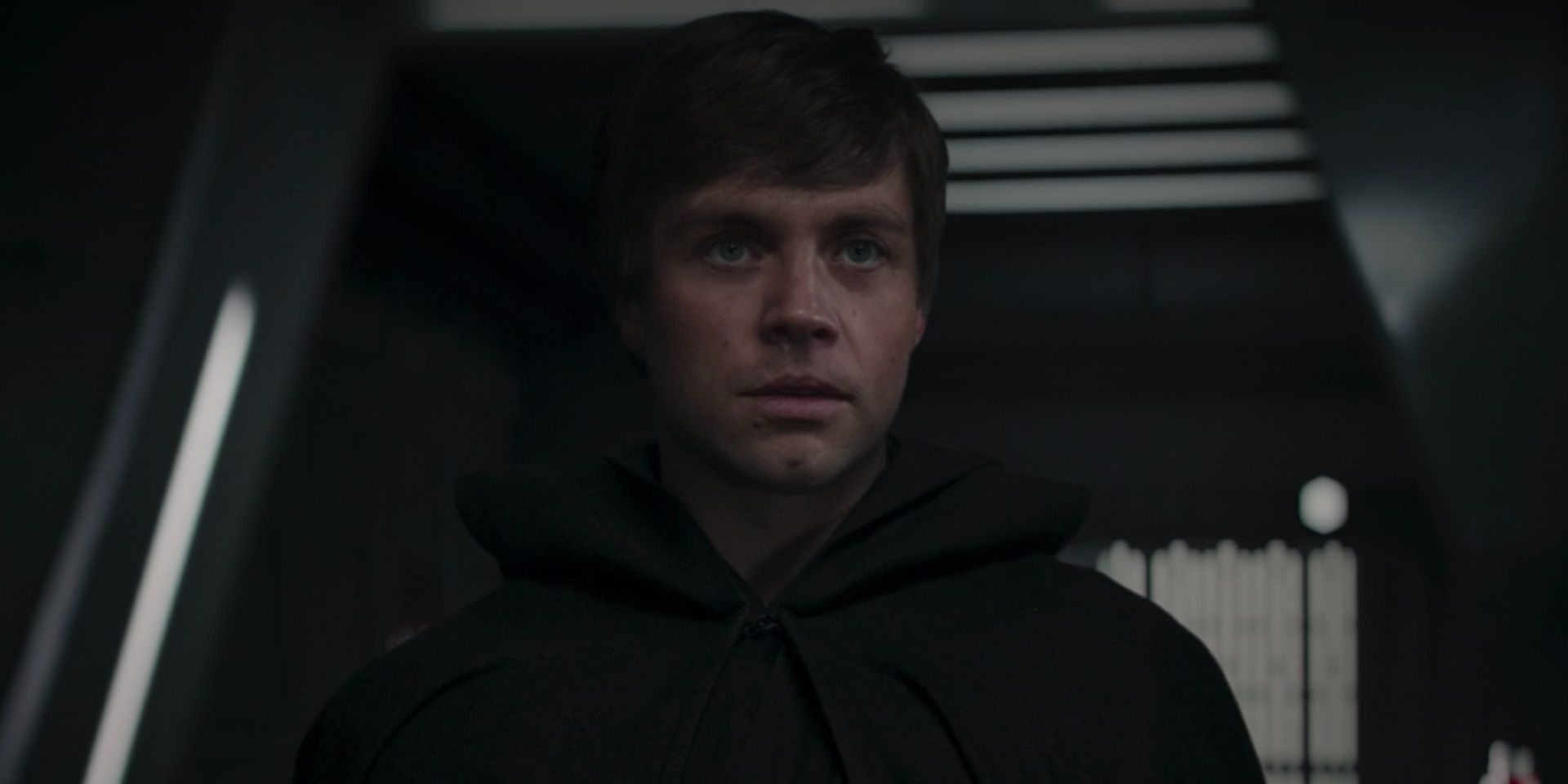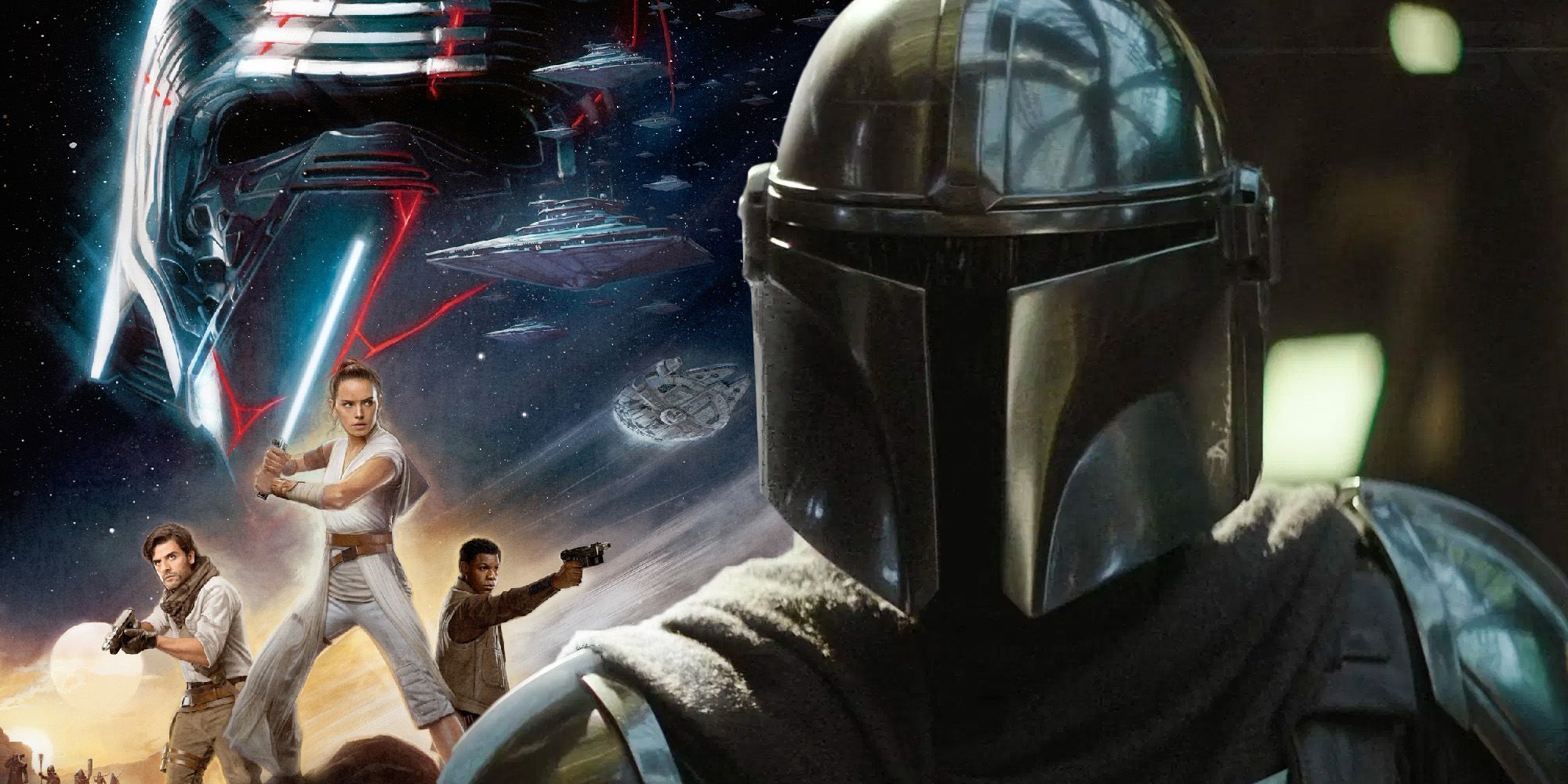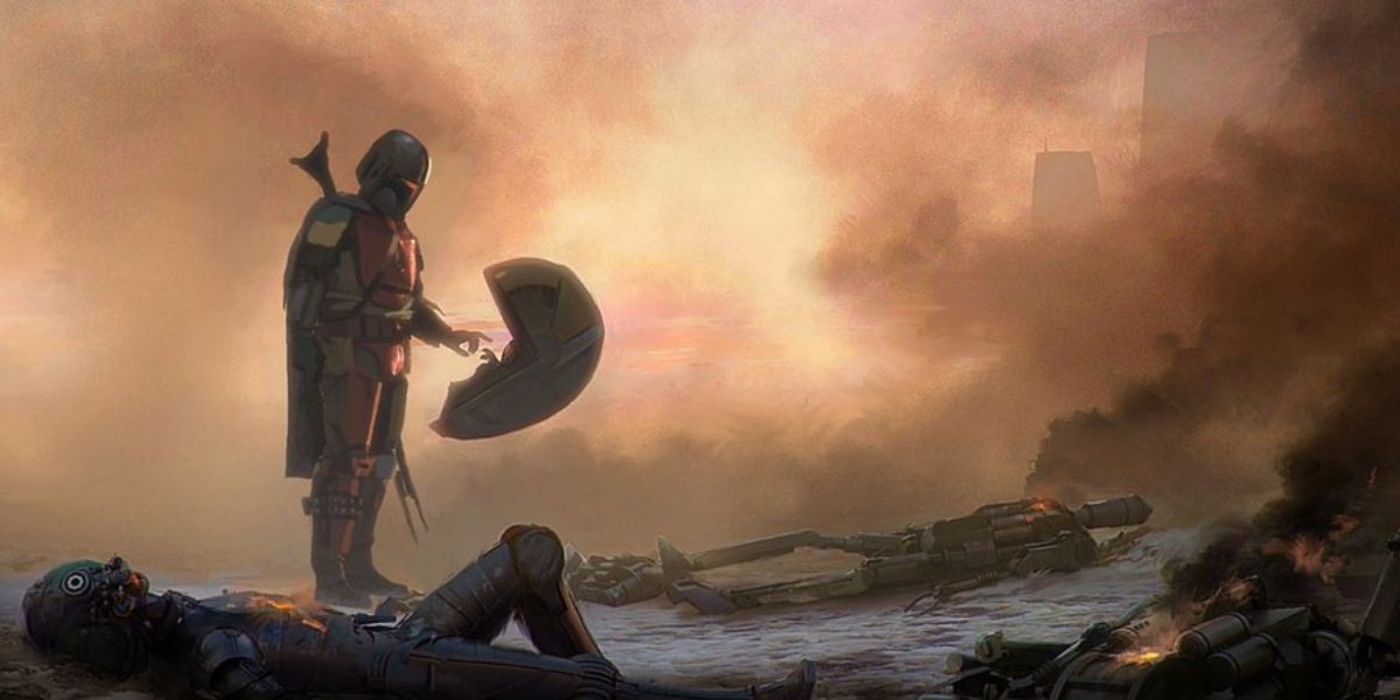It's becoming clear The Mandalorian is more important to the future of Star Wars than the sequel trilogy - and with good reason. At heart, Star Wars has always been the story of the Skywalker family. The original trilogy introduced viewers to Luke Skywalker and his friends, and the Expanded Universe built on this by telling Luke's stories after the events of Return of the Jedi. The prequels opened up an entirely new era, with Anakin Skywalker and Obi-Wan Kenobi serving as heroes of the Clone Wars.
When Disney acquired Lucasfilm in 2012, they intended to continue this tradition and release a sequel trilogy that would be just as important to Star Wars going forward. George Lucas had sensed the potential of the sequels, even drafting his own version of the story in the hopes of increasing Lucasfilm's value; Disney bought the scripts but decided to blaze their own trail. No doubt they hoped the characters and concepts they introduced would repeat the narrative success of the prequels, launching countless spinoffs and tie-ins.
That hasn't happened. Instead, it's now becoming clear Lucasfilm has pivoted to place The Mandalorian - the first live-action Star Wars TV series - at the heart of everything they do going forward.
How The Mandalorian Is Defining Star Wars Canon
Lucasfilm initially presented The Mandalorian as something of a side-story, the tale of a lone gunslinger operating on the Outer Rim of the galaxy, far from tales of Jedi and Sith. Luke Skywalker famously described Tatooine as the planet farthest from the galaxy's bright center, and that was precisely the kind of environment Din Djarin was most comfortable with. But it swiftly became clear the show was much more ambitious than that, with the bounty hunter's mission introducing him to Baby Yoda (now officially named Grogu). By the second season, Din Djarin was interacting with the likes of Boba Fett, Ahsoka Tano, and - ultimately - Luke Skywalker himself. The story of this Mandalorian bounty hunter was being skillfully woven into the overarching narrative of Star Wars.
This has placed The Mandalorian in a position of remarkable importance, with so many ideas now spinning out of it. Season 2 brought back Boba Fett, and gave viewers the kick-ass action scene featuring Boba they'd longed for since he was introduced in The Empire Strikes Back; it then set him up for his own spin-off series, The Book of Boba Fett. Rosario Dawson made her debut as the live-action Ahsoka, continuing her quest to hunt down Grand Admiral Thrawn, and she's getting her own spin-off too. Thrawn appears to be being positioned as Palpatine's successor, leader of the Imperial Remnant still operating on the Outer Rim, meaning the Galactic Civil War was never truly over. Meanwhile, Lucasfilm's Dave Filoni is even exploring the history of characters introduced in The Mandalorian, with Fennec Shand appearing in Star Wars: The Bad Batch. It really does feel as though the future of Star Wars is being built on the foundation of The Mandalorian, not the sequel trilogy.
Why The Mandalorian Is More Important To Canon Than The Sequels
There are, principally, two reasons Star Wars is increasingly focusing on The Mandalorian rather than the sequels. The first, sadly, is that the sequel trilogy can't be considered a success. They divided the fanbase, and Lucasfilm's desperate and hurried attempt to fix things led to an unsatisfying climax introducing ideas that sit uncomfortably with the canon and lore; the Sith cultists on Exegol are becoming more confusing every time a book or comic attempts to explain them. Meanwhile, the actors themselves consider their story to be over and want to move on. That's particularly the case with John Boyega, who has been vocal in his criticism of how the franchise handled his character Finn and has no interest in returning to Star Wars. The sequels have wrapped up, and there's nothing to really draw people in anymore.
The Mandalorian has done what the sequel trilogy failed to do; it has introduced new characters and locations, and in doing so it serves as a launchpad for countless new potential stories. What's more, everything seen in The Mandalorian builds so organically on what has been seen before. There's nothing so jarring as the sudden (still barely explained) emergence of the First Order, or the revelation Palpatine has returned from the dead through means that only became clear courtesy of tie-ins. The Mandalorian has led to a resurgence in interest in Lucasfilm's older TV shows, driving increased demand for both Star Wars: The Clone Wars and Star Wars Rebels, proving viewers continue to want to engage with Star Wars after watching the show's first two seasons. Star Wars has moved on to the small screen now, and The Mandalorian has become Lucasfilm's flagship.
What The Mandalorian's Importance Means For Star Wars' Future
Until now, the Disney era of Star Wars has largely been defined by the original trilogy, with Lucasfilm understanding these were the stories that were most popular and uncontroversial. They've quietly 'fixed' the prequel trilogy using tie-ins, and no doubt they'll attempt to do the same with the sequel era, which will be largely forgotten by the films and TV shows while books and comics try to rehabilitate those films. In the meantime, though, we should expect to see The Mandalorian become increasingly important on Disney+ in particular. Fennec Shand's appearance in Star Wars: The Bad Batch should be seen as a hint of the kind of interconnected universe that is coming - one centered not upon Luke Skywalker and Darth Vader, but on Din Djarin.
There are risks to this approach, though. The Mandalorian has begun to expand the Star Wars galaxy away from the traditional Jedi-Sith dynamic, but focusing too much on connectivity can easily result in the galaxy feeling as though it has shrunk again - this time around Din Djarin. What's more, there is the danger Lucasfilm will begin to see each season of The Mandalorian as a launchpad first and foremost, so they're more concerned with setup than the kind of character work that has made the series a hit. It's a big galaxy, and not everything should be tied to everything else. Meanwhile, Lucasfilm is becoming willing to change Star Wars canon, and - while that's understandable from strategic and narrative viewpoints - such an approach carries its own risks. Sooner or later, a continuity problem will slip through that is too egregious, and the overarching narrative will be damaged. The odds of such a mistake become even higher in the context of a pivot away from the sequels and towards The Mandalorian. It will be fascinating to see how Star Wars reshapes itself around The Mandalorian going forward.




